Kenya
Doomsday cult leader Paul Mackenzie and 30 of his followers were presented in a Kenyan court in the coastal town of Malindi on Wednesday to face charges of murdering 191 children.
Mackenzie and the other suspects did not enter pleas because High Court Judge Mugure Thande granted a request from prosecutors that they undergo mental assessments and return to court on Feb. 6.
The remains of 180 of the 191 dead children have not been identified, according to the prosecution's charge sheet.
Mackenzie and some of his followers have been blamed for the deaths of 429 members of his Good News International Church, many of whom are believed to have starved themselves in the belief that by doing so they would meet Jesus Christ before the world ends.
The bodies were discovered in dozens of shallow graves on an 800-acre (320-hectare) ranch in a remote area known as Shakahola Forest in the coastal county of Kilifi.
The graves were found after police rescued 15 emaciated church members who told investigators that Mackenzie had instructed them to fast to death before the world ends. Four of the 15 died after they were taken to a hospital.
Autopsies on some of the bodies found in the graves showed they died from starvation, strangulation or suffocation.
Kenya's top prosecutor said on Monday that 95 people will be charged with murder, cruelty, child torture and other crimes.
For months since the arrest of the defendants last April, prosecutors have asked a court in Kilifi for permission to keep holding them while the investigation continues. But last week, Principal Magistrate Yousuf Shikanda declined their latest request to hold the suspects for an additional 60 days, saying the prosecutors had been given enough time to complete the investigation.
Mackenzie is serving a separate one-year prison sentence after being found guilty of operating a film studio and producing movies for his preaching without a valid license.
Mackenzie allegedly encouraged church members to move to Shakahola Forest to prepare for the end of the world.
A Senate committee report said Mackenzie chose the area due to its remoteness.
“Once inside the villages established by Mackenzie, followers were not allowed to leave the area, nor interact within themselves,” the report said.
“The followers were required to destroy vital documents, among them national identity cards, birth certificates, certificates of title to property, academic certificates and marriage certificates," creating problems in identifying the dead, the report said.




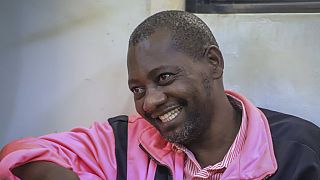
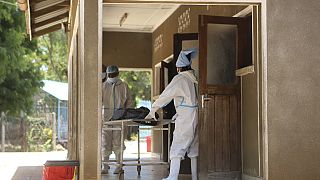
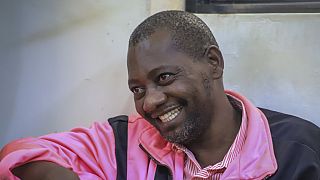

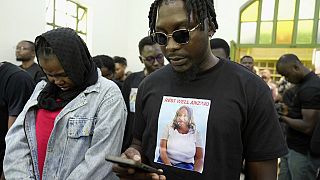
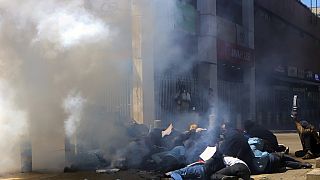



00:47
Ghana: President Mahama suspends Chief Justice Gertrude Torkornoo
Go to video
Police rescue 33 West Africans from a human trafficking scam in Ivory Coast
Go to video
Pope Francis' funeral scheduled Saturday April 26
Go to video
Uganda plans law to allow military prosecution of civilians
Go to video
Al-Qaida-linked militants attack a strategic town in Somalia
Go to video
Trump administration threatens Harvard over foreign student visas and protest ties